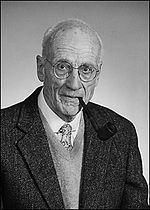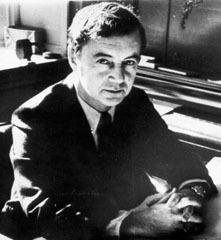Theodor Adorno Quotes - Page 2

Theodor W. Adorno, E. F. N. Jephcott (2005). “Minima Moralia: Reflections on a Damaged Life”, p.50, Verso
Theodor W. Adorno (1982). “Prisms”, p.72, MIT Press
The forms of art reflect the history of man more truthfully than do documents themselves.
Theodor W. Adorno (2014). “Towards a Theory of Musical Reproduction: Notes, a Draft and Two Schemata”, p.236, John Wiley & Sons
Theodor W. Adorno, E. F. N. Jephcott (2005). “Minima Moralia: Reflections on a Damaged Life”, p.210, Verso
Theodor W. Adorno, E. F. N. Jephcott (2005). “Minima Moralia: Reflections on a Damaged Life”, p.50, Verso
Theodor W. Adorno, E. F. N. Jephcott (2005). “Minima Moralia: Reflections on a Damaged Life”, p.28, Verso
Theodor Adorno, Richard Leppert, Susan H. Gillespie (2002). “Essays on Music”, p.41, Univ of California Press
A German is someone who cannot tell a lie without believing it himself.
Theodor W. Adorno, E. F. N. Jephcott (2005). “Minima Moralia: Reflections on a Damaged Life”, p.110, Verso
The hardest hit, as everywhere, are those who have no choice.
Theodor W. Adorno, E. F. N. Jephcott (2005). “Minima Moralia: Reflections on a Damaged Life”, p.39, Verso
Max Horkheimer, Theodor Adorno (2002). “Dialectic of Enlightenment”, p.2, Stanford University Press
Theodor W. Adorno, E. F. N. Jephcott (2005). “Minima Moralia: Reflections on a Damaged Life”, p.94, Verso
Theodor W Adorno (2005). “The Culture Industry: Selected Essays on Mass Culture”, p.103, Routledge
The poor are prevented from thinking by the discipline of others, the rich by their own.
Theodor W. Adorno, Rolf Tiedemann (2003). “Can One Live After Auschwitz?: A Philosophical Reader”, p.76, Stanford University Press
The culture industry not so much adapts to the reactions of its customers as it counterfeits them.
Theodor Adorno, Richard Leppert, Susan H. Gillespie (2002). “Essays on Music”, p.46, Univ of California Press
The splinter in your eye is the best magnifying-glass available.
Theodor Adorno, Richard Leppert, Susan H. Gillespie (2002). “Essays on Music”, p.64, Univ of California Press
"Wozu noch Philosophie? (Why still philosophy?)". Paper by Theodor Adorno, 1963.
Theodor Adorno, Richard Leppert, Susan H. Gillespie (2002). “Essays on Music”, p.352, Univ of California Press
Theodor W. Adorno (1978). “Minima Moralia”, p.128, Verso
Theodor W. Adorno, Rolf Tiedemann (2003). “Can One Live After Auschwitz?: A Philosophical Reader”, p.53, Stanford University Press
Theodor W. Adorno, E. F. N. Jephcott (2005). “Minima Moralia: Reflections on a Damaged Life”, p.123, Verso






